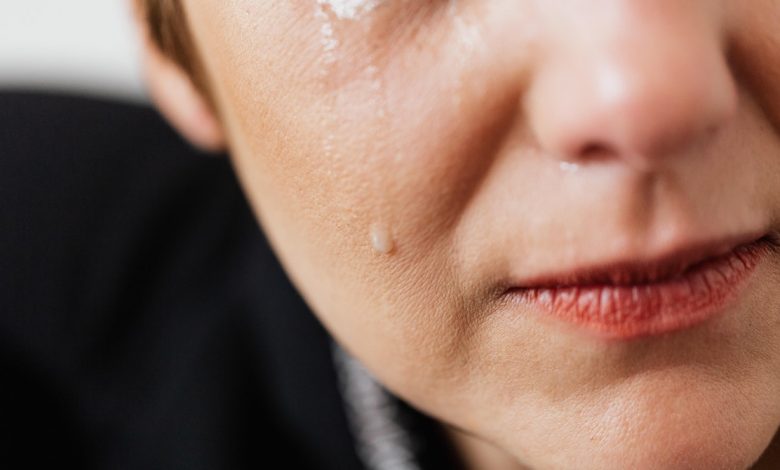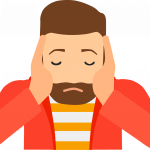How Gabapentin Ruined My Life!

What is gabapentin?
Gabapentin is a prescription medication known as gamma-aminobutyric acid (GABA) analog. GABA reduces the excitability of nerve cells (neurons) in the brain, which plays a role in seizures and the transmission of pain signals. Gabapentin mirrors the effects of GABA calming excited neurons. Gabapentin is in a class of medications called anticonvulsants.
Gabapentin is available as both a brand name product and a generic product (chemically the same, usually lower cost than the brand name product). Brand names of gabapentin include Horizant®, Gralise®, and Neurontin.
Gabapentin oral capsule is used to treat the following conditions:
• Seizures: Gabapentin is used to treat partial (focal) seizures. It’s taken together with other seizure medications in adults and in children 3 years of age and older who have epilepsy.
• Postherpetic neuralgia: This is pain from nerve damage caused by shingles, a painful rash that affects adults. Shingles appear after infection with the varicella-zoster virus. This virus occurs in people who have had chickenpox.
Gabapentin may be used as part of a combination therapy. This means you may need to take it with other drugs.
How Gabapentin Ruined My Life
Since its approval in December 1993, under the brand name Neurontin, for adjunctive therapy of partial seizures, gabapentin has been associated with the good, the bad, and the ugly. Horror stories of Gabapentin withdrawal symptoms have marred the good effects of the drug.
A pharmacy student who had a terrifying encounter with the drug wrote: “I am one of the unlucky people who experienced severe, prolonged withdrawal symptoms from Gabapentin. I reluctantly agreed to take Gabapentin when my new doctor refused to continue my PRN opioid prescription for chronic pain.
The Gabapentin was never very effective, yet I stayed on it for two years, hoping it would get better. I was on a relatively low dose – 300mg/day for 1/3 of the 2 years, then 600mg/day for another 1/3, and 900mg/day for the final 1/3.
I was having gaps in my memory, feeling very sleepy, and could no longer write like I used, with severe aphasia (difficulty remembering words). So I decided to stop taking Gabapentin.
My doctor gave me the typical 2-week taper plan. I cut my dose down for the first phase by 300mg. The second day of that, I felt very dizzy, disorientated, like having the worst panic attack of my life or a very bad acid trip. I remember crying and shaking, begging my mom to take me to a hospital or something, unsure what was wrong with me, thinking I was certainly dying.
At some point, it occurred to me that it could be Gabapentin withdrawal. I did some searches on Reddit and asked around in some Facebook chronic pain and addiction groups. I was recommended a group on Facebook for Gabapentin withdrawal support, and thank goodness I found it.
The group was full of people with similar stories and symptoms to mine. These unlucky people who had severe withdrawal symptoms had a guide for slow tapering by cutting down 10% of your dose every month.
I made an appointment with an addiction specialist psychiatrist I’d seen in the past. He validated everything I’d experienced and read in that group. Some people cannot quickly taper from Gabapentin and have severe withdrawals similar to benzodiazepine withdrawals.
Some have seizures, though I never experienced that thankfully.
Here are the main symptoms I experienced:
- Excessive sweating
- Fatigue
- Tachycardia (rapid heartbeat above 100bpm)
- Palpitations (awareness of heart beating in the chest)
- Nausea
- Dizziness
- Blurred vision
- Exhaustion
- Hypersomnia (excessive sleeping upwards of 12 hours a day)
- Increased anxiety and panic attacks
- Depression
- Neuropathy
It was extremely difficult to get off this drug. It took me a full year to taper off completely. I’ve experienced Xanax and heroin withdrawal as a teenager and neither were as bad as Gabapentin withdrawal. The Gabapentin withdrawal is just so unpredictable and not many doctors or pharmacists believe you when you tell them what you’re experiencing.
If anyone is going through difficult Gabapentin withdrawal, I strongly recommend seeing an addiction specialist physician. They are generally the best people to help you with this”.
A Reddit user wrote “A couple of days ago, I decided I would stop taking gabapentin (prescribed 600mg 3 times a day since early last summer) cold turkey. I thought I could bear through the withdrawal, having gone through benzo, alcohol, and opiate withdrawal in the past I’m no stranger to the game. I was very very wrong and just want to know when I can expect to feel normal again.
About four hours ago, I took my typical afternoon dose to try and relieve symptoms but I still feel horrible. I have a migraine so bad if I try and move at all I almost instantly projectile vomit. Oddly enough, sound and light aren’t bothering me at all. Also odd, I can’t lay down without making the pain a lot worse. I missed 5 doses total, should I take a couple of doses at once to catch myself up? I know it sounds ridiculous but I’m desperate here I need to be able to work tomorrow”.
Gabapentin horror stories like the one above are very common but the experience of another Reddit user demonstrates the extent Gabapentin can ruin one’s life if not properly handled, the user wrote “ I’m (22f) not sure where else to share this experience, but gabapentin withdrawals seem to be so varied and I’d just like to put my experience with it out there and maybe seek some advice.
I started experimenting with gabapentin around 18 and soon came to love the experience. My libido was back, I could talk to strangers and I felt free. My love affair with the drug recreationally came to a head when I was submitted into an outpatient therapy program where I was prescribed Citalopram and 300mg of gabapentin 2x daily at 20. Because I had experience with the drug, I continued to request higher doses because I’d run out of my script quickly. I had severe anxiety, still do, and refused to take any benzos because of the horror stories and personal experiences I’ve had with them.
Gabapentin is the only thing that seemed to quell my anxiety, and soon I came to understand how poor my quality of life was before the drug. Gabapentin gave me a normal sleep cycle, a healthy appetite, the ability to smile and enjoy going to work, and some motivation to do well in school. I realized I loved the drug recreationally because it seemingly cured my anxiety and freed me from the chains of worry and dread. My current dose is 1200mg 2x daily, and it still seems like it’s not enough.
About three months ago, I ran out of my script. I couldn’t sleep, and I felt like I was on a low dose of Adderall. I was manic, and I had never experienced mania before. Usually, I was sluggish, lazy, and fatigued constantly before I was on it, and now it seemed as though I had some psychotic form of ADHD. I saw lights and shadows in the periphery of my vision, I clenched my jaw constantly and had a mild headache all day. I was tired and wired at the same time. I eventually got my refill, and for the last three months, I’ve consistently done more than prescribed (when I run out, my friend gives me what they don’t take).
Today, I ran out. I went to work without it, got through the day without it, and when I went to my friend for their extra gabapentin, the withdrawals were even more severe. After being off of it for only 12 hours, I was basically coked out. My friend and I have been close for the last 12 years, and he was telling me “you’re manic, you can’t focus, and you’re giving me anxiety.”
I feel like a monster, I feel like an addict, and to those that say this drug doesn’t cause withdrawals, doesn’t cause physical addiction, it’s categorically wrong.
I don’t know what to do. My anxiety is so awful, and I no longer take the Citalopram for a myriad of reasons. Gabapentin is the only thing that seems to help me, but it’s also driving me insane. I genuinely feel like a “junkie,” as terrible as it sounds. I need it, but it’s hurting me. I no longer understand the “baseline” I used to be at without it because I don’t relate to what life was before it. I was so miserable, but on the drug, I feel safe in myself and my relation to the outside world, and that position is so deeply confusing”.
Although Gabapentin is not as addictive as other medications, the recreational use of the drug can have far-reaching consequences. Studies suggest that some people may experience thoughts of suicide or exhibit suicidal behaviors when taking gabapentin or other anticonvulsants.
Gabapentin Withdrawal Symptoms
Both those who abuse gabapentin and those who take it as prescribed can experience some form of withdrawal when the drug is stopped. Research shows that someone taking gabapentin for as little as 3 weeks, and at doses as low as 400 mg a day may experience withdrawal.
Gabapentin withdrawal symptoms are similar to those associated with benzodiazepine and alcohol withdrawal and vary from mild to life-threatening.
The symptoms of gabapentin withdrawal include:
• Irritability
• Anxiety
• Agitation
• Restlessness
• Excessive sweating
• Sensitivity to light
• Headache
• Confusion or disorientation
• Fever
• Hallucinations
• Rapid heart rate or heart palpitations
• Catatonia or inability to move
• Status epilepticus – a condition where seizures occur one after another (can be fatal)
A physician or medical professional at a detox facility can safely manage these symptoms.
Why People Have Bad Experiences With Gabapentin
Although it is generally considered safe and well-tolerated, some people may experience negative side effects or have a bad experience with the medication. Here are some of the reasons why people may have bad experiences with gabapentin in detail:
1. Incorrect Dosage: Taking too much or too little gabapentin can lead to negative side effects. For example, taking too much gabapentin can cause dizziness, drowsiness, and confusion. On the other hand, taking too little gabapentin may not provide adequate symptom relief. It’s important to follow the dosing instructions provided by the prescribing physician and not to adjust the dose without consulting with them first.
2. Interactions with other medications: Gabapentin can interact with other medications, including over-the-counter medicines and supplements. For example, gabapentin may interact with opioids, benzodiazepines, and antacids. If someone is taking gabapentin alongside another medication, there is a possibility that the medications may interact in a way that causes negative side effects. It’s important to inform the prescribing physician of all medications, supplements, and over-the-counter drugs being taken before starting gabapentin.
3. Pre-existing medical conditions: People with pre-existing medical conditions, such as kidney disease, may be more susceptible to negative side effects from gabapentin. It’s important to inform the prescribing physician of any pre-existing medical conditions before starting gabapentin. The doctor may need to adjust the dosage or choose an alternative medication to avoid adverse effects.
4. Misuse and Abuse: Gabapentin is sometimes misused and abused, particularly by people who are trying to get high. Misuse of the drug can lead to negative side effects and addiction. In fact, some studies have shown that gabapentin has potential for abuse and addiction, especially among people with a history of substance abuse or addiction.
5. Allergic Reactions: While rare, some people may have an allergic reaction to gabapentin. Symptoms of an allergic reaction include rash, hives, and difficulty breathing. If someone experiences any of these symptoms after taking gabapentin, they should seek medical attention immediately.
6. Withdrawal: People who abruptly stop taking gabapentin may experience withdrawal symptoms, including anxiety, insomnia, and nausea. To avoid withdrawal symptoms, it’s important to gradually taper off gabapentin under the guidance of a healthcare provider.
Overall, gabapentin is a safe and effective medication for most people when taken as prescribed by a doctor. However, it’s important to be aware of the potential risks and to inform the prescribing physician of any pre-existing medical conditions, other medications, or concerns about the medication.
You may find useful information on How to Stop Taking Gabapentin Safely





